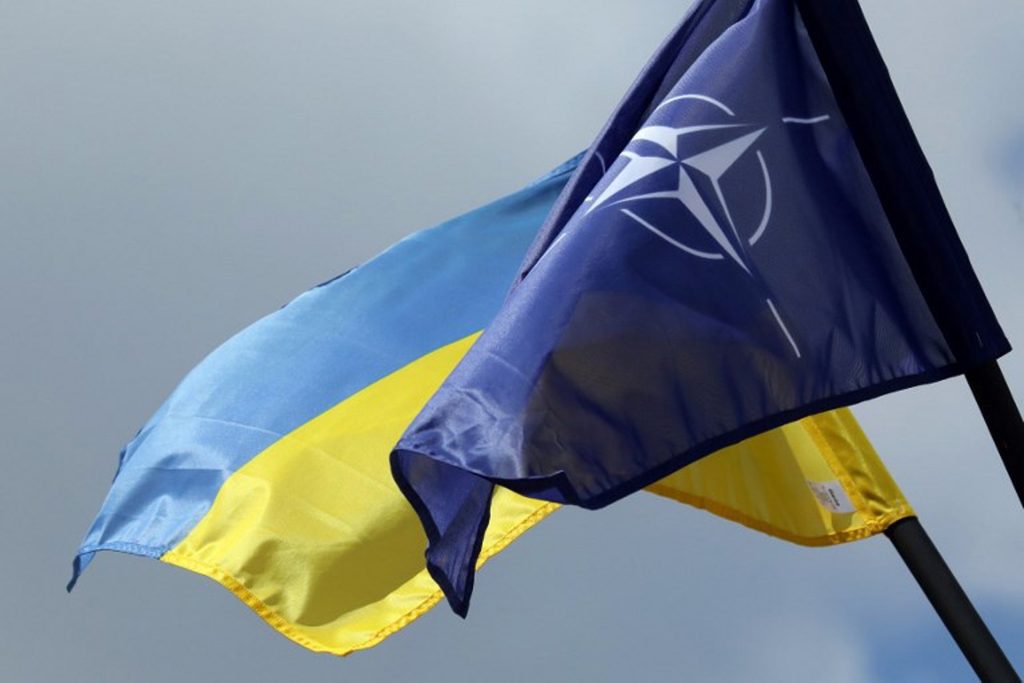NATO Secretary-General Jens Stoltenberg is convening a meeting of the new NATO-Ukraine Council for Wednesday at Ukraine’s request.
The meeting will be about the need “to consult on the latest developments and discuss the transportation of Ukrainian grain across the Black Sea,” NATO spokesperson Oana Lungescu said. The meeting will be held between ambassadors, Lungescu said.
Shortly before the announcement, Stoltenberg was in telephone contact with Ukrainian President Volodimir Zelenskyy.
"Good call with President Zelenskyy on Russia’s withdrawal from the Black Sea grain deal. We strongly condemn Moscow’s attempt to use food as a weapon," Stoltenberg tweeted afterwards.
Zelenskyy shared that he and Stoltenberg had discussed the implementation of agreements reached at the recent NATO summit and further steps to integrate Ukraine into the alliance.
"We also determined together with Stoltenberg the priority and steps to be taken for the unblocking and sustainable functioning of the Black Sea grain corridor," Zelenskyy responded in a tweet.
What is EU's position?
Russia announced last Monday that it has withdrawn from the Black Sea Grain Initiative. The Initiative had been signed indirectly with Ukraine via the UN and Turkey a year ago. It enabled the export of grain from Ukraine through the Black Sea to stabilize global food prices and alleviate food shortages in parts of Africa and the Middle East.
Russia claimed that the deal was one-sided because of the sanctions imposed on its own exports that, it said, restricted the sale of Russian agricultural products and fertilizers. It also listed other demands for renewing the grain deal such as easing the sanctions against the Russian Agricultural Bank.
In fact, none of the sanctions adopted by the EU against Russia targets the trade in agricultural and food products, including cereals and fertilisers, between third countries and Russia. A spokesperson told The Brussels Times that the updated guidelines in September 2022 makes it clear that the transfer of Russian fertilisers to third countries via the EU is permitted.
Furthermore, the 9th package of sanctions in December 2022 introduced a derogation allowing member states to unfreeze assets and to make funds and economic resources available to certain individuals, who held a significant role in international trade in agricultural and food products, including wheat and fertilisers, prior to their listing.
Is there room for negotiations between the EU and Russia, via Turkey as last time, on renewing the grain deal?
“All questions about a possible revision of sanctions are speculations,” a spokesperson replied at the daily press conference in Brussels on Thursday. “The sanctions are there; they have been adopted and we stand by them.” The spokesperson referred to the Foreign Affairs Council meeting which was still on-going the whole day.
According to conclusions from the Council meeting, the Council only “touched on the termination of the Black Sea Grain initiative by Russia” and did not take any decisions. The Council reiterated its support for Ukraine’s Peace Formula, “the only comprehensive basis to achieve a just and sustainable peace in the EU’s view”.
In his press remarks after the meeting, the last one before the summer break, Josep Borrell, High Representative for Foreign Affairs and Security Policy, addressed briefly the issue but did not have time to take any questions.
“Russia - without any justification – is blocking and bombing Ukrainian seaports and preventing freedom of navigation in the Black Sea, [now also] threatening all ships navigating in the Black Sea to be considered as ‘warships’, he said. “Russia illegally blocks exports of Ukrainian grain. It destroys Ukrainian fields and loots Ukrainian agricultural production.”
“Contrary to what Russia is claiming, it is making good profits from exports of its grain and fertilisers, and will make even more profits now when the prices will rise again after Russia killed the [Black Sea Grain] Deal, and destroys the stockpiles in the Ukrainian harbours.”
"We believe that the international community should respond decisively to this deliberate attempt by Putin to starve the world populations, in order to gain extra money or to fight this illegal war."
The EU has taken steps to support Ukraine’s overland grain experts via road, rail and barges (“Solidarity Lanes”). However, five EU members states bordering to Ukraine have protested against the export because it has disrupted their domestic grain market. It is also uncertain whether the Solidarity Lanes have the capacity to replace the export via the Black Sea.

